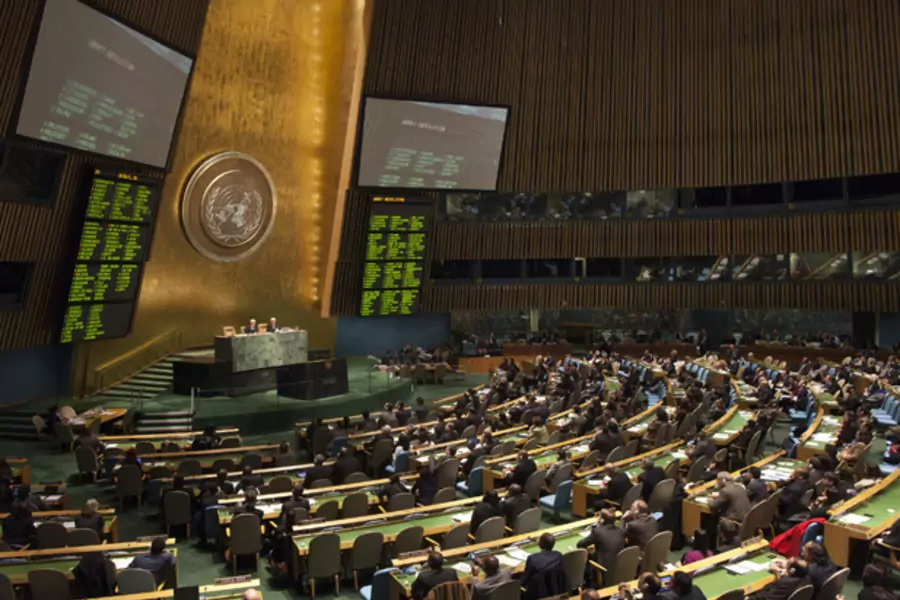Some Perspective on the United Nations

More on:
Last week, I participated in the U.S. State Department’s online interview program, “Conversations with America,” alongside Esther Brimmer, the assistant secretary of the Bureau of International Organization Affairs at State, and Heather Hurlburt, the executive director of the National Security Network. Watch the program online at state.gov and join the conversation about addressing global challenges at the United Nations (UN). Some highlights below:
- The United Nations serves the average American citizen in invisible but important ways on a day-to-day basis—through keeping planes aloft to monitoring nuclear facilities worldwide or investigating the death toll in Syria. As with so many things, the fact that citizens only read about problems in the news creates a negative bias.
- One major benefit to the U.S. taxpayer from the United Nations is peacekeeping. Without a single U.S. troop, the UN peacekeeping forces are deployed in roughly fifteen conflicts around the world to preserve regional security that the United States would likely otherwise have to protect by itself with U.S. military forces. The total UN peacekeeping budget is about the same price as U.S. operations per month in Afghanistan, and the United States only pays about a quarter of the UN budget.
- The universal membership of the United Nations and the fact that its charter has the force of international law provides legitimacy to many U.S. international initiatives—which ultimately increases their efficacy and cost-effectiveness. But at the same time, U.S. citizens and policymakers alike must have realistic expectations of the organization. Structurally, if the UN Security Council members disagree, the UN will not be able to act forcefully, which is why the Obama administration reserves the right to take action outside the UN if necessary. This is particularly important to bear in mind when analyzing the international approach in Syria. While the United States could always cobble together a coalition outside the United Nations—as done in Kosovo—these decisions can be dicey and have extensive international consequences.
- One of the unsung successes over the past decades is the incredible increase in female literacy. A generation ago, two-thirds of women could not read. Today, thanks in part to major international efforts to improve education and girl’s access to schools, between 60 and 80 percent of women can read.
- Without question, Syria is one of the most difficult questions on the security agenda today. Because of Chinese and Russian opposition to international action in Syria, the United States has been very active in other channels—including in the Human Rights Council and in providing substantial humanitarian aid.
More on:
 Online Store
Online Store